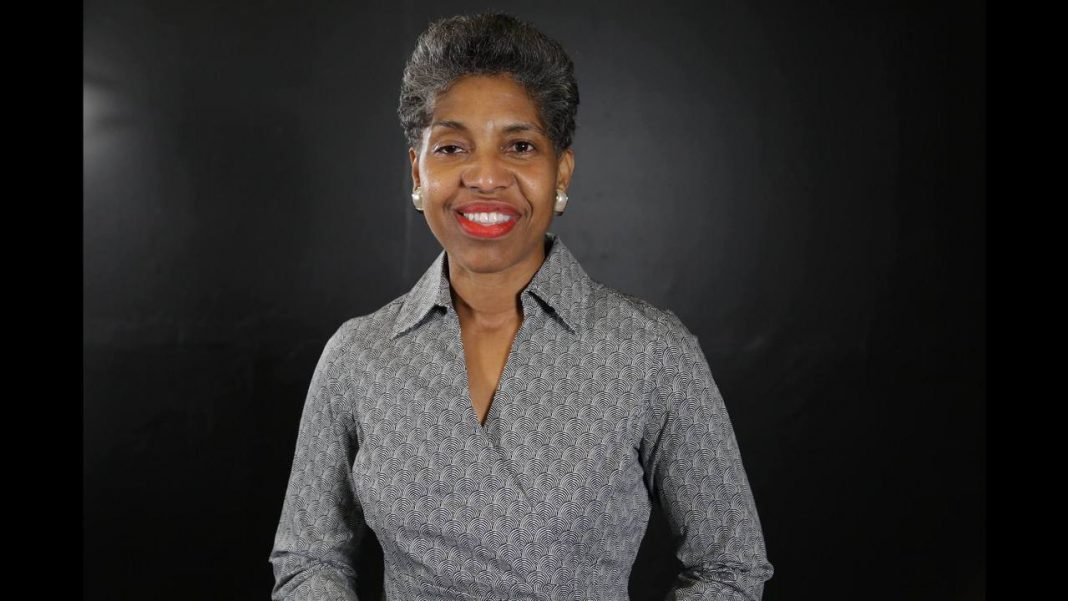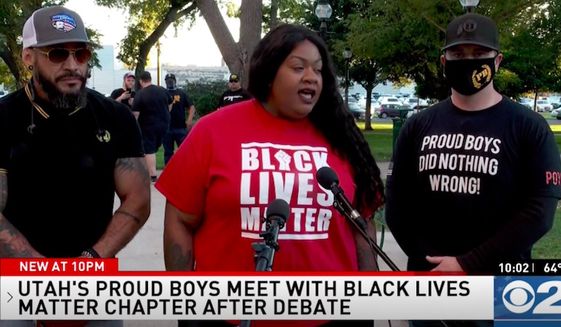
The Oklahoma Eagle Newswire
On Tuesday, Oct. 6th beginning at 2 p.m., a public interim study will be held virtually to address the system of law and enforcement. Rep.Regina Goodwin said, “For generations, black and brown people interacting with officers are more adversely pained and impacted than our white counterparts when we are stopped, arrested, prosecuted or killed. We say the names of souls, Breonna Taylor, George Floyd, Eric Harris, Elliot Williams, Jeremy Lake, Joshua Barre, Joshua Harvey, Terence Crutcher, Derrick Scott, Robert Harris and so many more who were killed by the hands and knees of people sworn to uphold the law. Often, injustice beats us. We must keep pressing and enact good law and policy changes to gain justice.”
Rep. Goodwin seeks to have credible information and insight shared to address challenges and injustices. The goal is to have bipartisan agreement to pass significant legislation in critical areas, be it Changes/Elimination of Qualified Immunity, Police Union Collective Bargaining Agreements, Use-of-Force, Accountability and Consequences, De-Escalation Training and Tactics, Patterns and Practices , Independent Investigations, Body Cam Non-Usage, Community Policing, Fees and Fines, Unfair Sentencing, Hate Crimes, Data Bases of Violating Officers and more.
A most able group of presenters will offer solutions. Agenda is listed.
IS20-006, Law Enforcement Reform (Goodwin)
- 2:00-2:03 p.m. – Rep. Regina Goodwin, Opening statements
- 2:03-2:23 p.m. – Professor Stephen Galoob, University of Tulsa School of Law
Jacqueline Blocker- Engagement Director, Oklahomans for Criminal Justice Reform
Kris Steele – Executive Director, Oklahomans for Criminal Justice Reform
Members of Oklahomans for Criminal Justice Reform will provide a topline view of the financial inefficiency of the current fines and fees process in Oklahoma; attempt to connect the dots between FTP warrants and policing; and offer potential solutions from a state level.
- 2:23-2:43 p.m. – Jay Schweiker, Attorney and Policy Analyst, Cato Institute
Attorney Schweikert will provide testimony about qualified immunity, including a brief history, case law precedent, and recent Colorado law passage. Schweikert is a policy analyst with the Cato Institute, a nonpartisan public policy research organization.
- 2:43-3:03 p.m.- – Drew Diamond- Executive Director, Jewish Federation of Tulsa, and
Tulsa Chief of Police (Retired)
Mr. Diamond will focus on aspects of racially biased policing practices and issues, the excuse of fear and he’ll include ways the police can commit to unbiased policing, clarify the circumstances in which officers can consider race/ethnicity when making law enforcement decisions, and reinforce procedures that serve to assure the public that police are providing service and enforcing laws in an equitable way.
- 3:03-3:23 p.m. – Loretta L. Radford, Legal Director, Oklahoma City University School of
Law Criminal Justice Center, and former Assistant US Attorney.
Attorney Radford will present on issues of prosecutorial misconduct and seeks legislation, like the George Floyd Act eliminating the use of chokeholds and the carotid restraint, and adding data basis leading to safer communities.
- 3:23-3:30 p.m. Chris Brown, Patient Companion at Saint Francis Hospital
Mr. Brown will include a personal story about his interactions the Tulsa Police Department. As someone who works with patients at Saint Francis Hospital, he will also include a community perspective on policing.
- 3:30-3:50 p.m. – Rhonda Bear- Founder, Stand in the Gap Ministries, His House
Outreach Ministries Inc., and She Brews Coffee; Sara Foreman- previously incarcerated individual will share insights.
Ms. Bear will discuss the pros of diversion and re-entry programs, also lack of diversity and equity in the prison diversion programs, and photographing and profiling by police.
- 3:50-4:10 p.m. – W. Brett Behanna, Attorney, Coyle Law Firm
Attorney Behanna’s presentation will consist of two topics. First, collective bargaining agreements for police officers provide protections that stand in the way of accountability. Reforming or limiting these agreements would be an important step to increase transparency and promote public trust. Second, requiring the proper use of body and dash cameras is a cost-effective way to provide an objective lens for both the public and police, lower reports of police misconduct, and improve the training offered to our officers.
- 4:10-4:30 p.m. – Dr. Tiffany Crutcher- Founder, Terence Crutcher Foundation
In the aftermath of highly publicized police killings of unarmed Black residents, including George Floyd in Minneapolis, MN, and Breonna Taylor in Louisville, KY, demonstrators across the country have protested police violence and demanded accountability. Tulsans have demanded police accountability since the killing of my twin brother Terence Crutcher by a white Tulsa police officer. Based on my personal experience, I will emphasize the need for the Oklahoma legislature to pass laws that will change the police use of force standard so that officers use deadly force only when necessary and after exhausting alternative interventions, such as de-escalation tactics. I will also propose the repeal of qualified immunity in Oklahoma, a doctrine that protects government officials from liability for violating person’s rights, such as police use of excessive force.
The link is www.okhouse.gov and then click on media audio/video.









